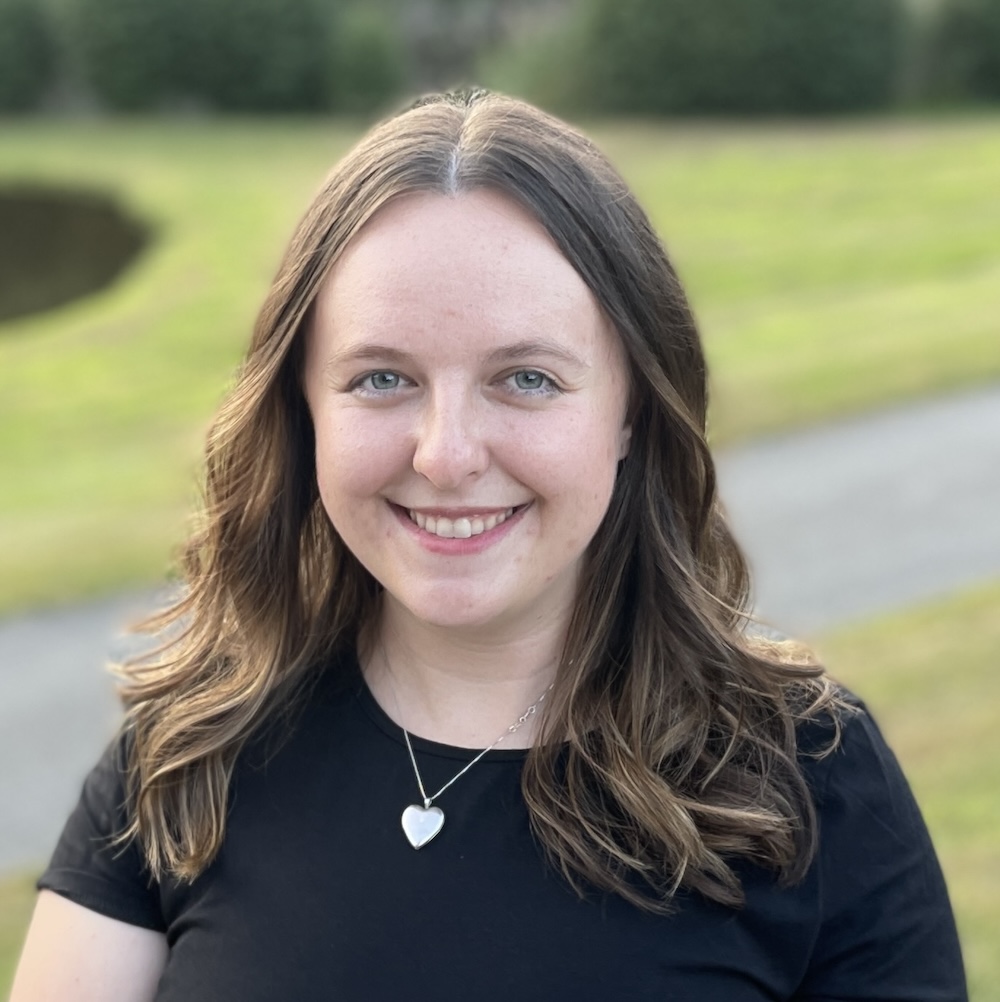Emily Stadnicki, PhD'25, Molecular and Cell Biology
Scientist 1, Calico Life Sciences
October 15, 2025
Can you describe your career path and how it has led to your current work?
I am currently a Scientist in the Discovery Technology branch of Calico Life Sciences in South San Francisco, California. Calico focuses its research efforts on studying aging with the goal of increasing healthspan. More specifically, I work for the Protein Sciences core team as an enzymologist and structural biologist. I am in the really fortunate position that I get to work closely with both research and development teams to collaborate on many different exciting and diverse projects. In addition, since Calico is privately funded, we have the ability to work on projects to understand the biology of aging without pressure to quickly bring a drug to market. It feels like a happy medium between large pharma and an academic lab, which is exactly what was envisioned by our founders.
Before starting graduate school I knew that I wanted to take the industry path. Knowing that up front allowed me to build a research project that incorporated many skills and techniques that are valued in industry. I also ensured that my research included diverse skills like protein biochemistry and cell biology in order to make me a better candidate for more positions. Not only did this help me gather important skills, but it narrowed down the type of research that I wanted to pursue. Working with proteins, from analyzing their activity to visualizing them with structural biology, was a huge part of my PhD research and where I felt both most challenged and intrigued. I was extremely lucky to find a position at Calico that allows me to do both of these things and really contribute significantly to the research and development that we are doing to advance the field of aging.
What does a typical day/week look like for you in this position?
My typical day looks a lot like my days in my PhD lab in a lot of ways. I am the scientist in charge of developing protein activity assays for a few drug pipelines and am in charge of the structural biology efforts for all projects. Each week I align priorities with my supervisor and catch him up on data that I have collected in the previous week. Throughout the week I spend 70% of my time in the lab and the other 30% in meetings updating different teams about results and planning for future experiments. One large difference here compared to my time at Brandeis is the speed of scientific development. Each project has a team of biologists, biochemists, machine learning engineers and so many more teams to work toward a common goal. This means lots of meetings but also means that each group can focus on what they do best. It really is an exciting way to do research.
What skills from your Brandeis degree have you found most valuable in your current work?
I learned most of the scientific skills I brought into this position from Brandeis. Other than just what I learned while working in the Bradshaw lab, I found the programs through the office of innovation to be extremely valuable. During my time at Brandeis I was awarded the Sprout grant twice and took part in the ICorps program. The Sprout grant not only helped me get my project off the ground since it was completely new to my lab, but it taught me how to present my project and research to an industry audience. Throughout my time at Calico, I have had to research and pitch projects as well as present data to large groups of scientists that decide if the project is go or no go. Learning early on at Brandeis how to effectively do this was essential to my current success. This goes hand in hand with the ICorps program as well. Knowing how to look at the competitive landscape and find the right indication for a drug or product is something that I do frequently in my current role. Getting early exposure to this through the ICorps program put me ahead of my peers in that regard.
What advice do you have for current students as they embark on their career exploration or job search?
The biggest advice that was given to me when I was thinking about jobs is now the biggest advice I will give students: it is never too early to start networking!! Honestly, a lot of times it is about who you know, not what you know, to get that first interview. However, make sure you are networking effectively. It is not enough to just reach out to someone and ask how they like their company. Every interaction you have, you should remember that you are selling yourself. Make sure to do the research about the company before chatting with an employee and be ready to share your experiences that prove you would be a great addition to their team, even if they are not currently hiring. Once you have made that positive connection it is possible that employee will extend you a referral or think of you the next time they are hiring. Talking to people in the position you think you want to be in will also help you determine what skills to focus on while finishing your degree as well as if you could see yourself in their shoes.






